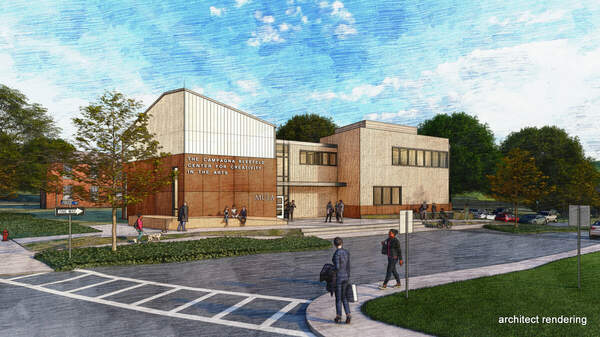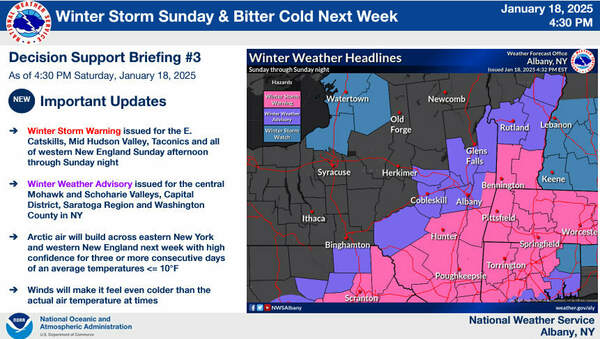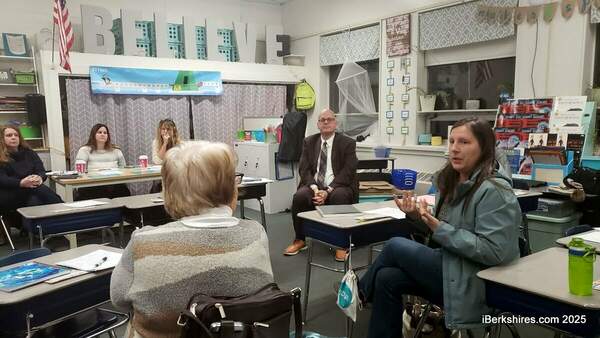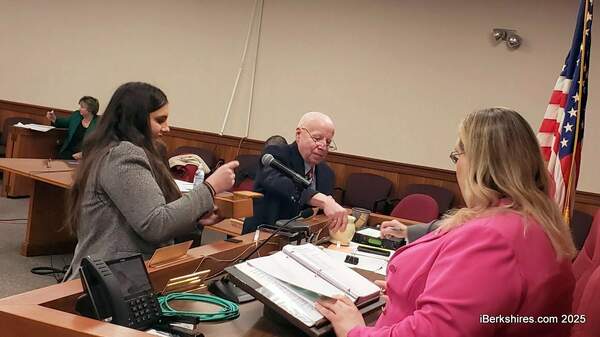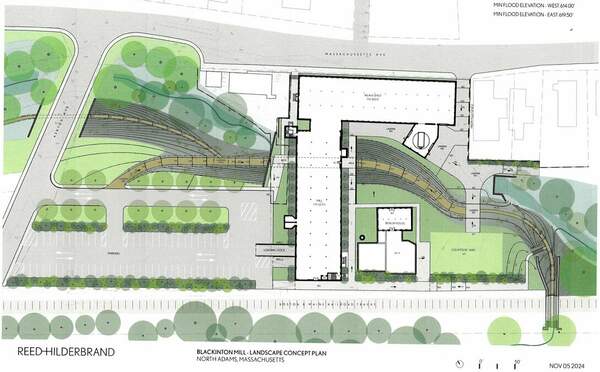
Barrett: Send Stimulus Money to Communities
 |
"Our government in Washington is so out of touch with reality it's a sin ... they don't have a clue," the mayor told members of the Williamstown Chamber of Commerce on Thursday morning at the new Richmond Grille in the Holiday Inn. "They're just throwing money at the problem."
Instead, lawmakers should have been determining how to get the largesse injected into local spending for more immediate return.
"They really should have talking to the mayors throughout the country on how the money should be spent," said the state's longest-serving mayor. "The money shouldn't be sent to the state but directly into the communities who can best determine how it could impact us."
As examples he referred to the city's transfer station, which requires $1 million in upgrades, and Phase II of the Mohawk Theater restoration, which has been put forward for $8 million in stimulus funds, both of which would help local businesses.
The city's transfer station is the only one that accepts commercial waste in Northern Berkshire, said Barrett. If businesses can't get rid of their waste, it will have to be trucked to Pittsfield at likely higher costs: "If we don't make that investment it's going to cost you."
 iBerkshire files
 Investments were made in North Adams streetscape; right, the interior of the Mohawk Theater is undergoing limited restoration. Investments were made in North Adams streetscape; right, the interior of the Mohawk Theater is undergoing limited restoration. |
The chamber, which includes members from both Williamstown and North Adams, had invited the mayor to speak about his vision for the region.
Barrett has frequently articulated his opinions on the use of arts and culture community to catalyze economic opportunity for the former manufacturing center.
He spoke extensively on this and the city's struggle to recover over the loss of Sprague Electric Co. in the 1980s and frequent downturns since.
With the loss of manufacturing, more effort had been put into the city's image. It had been about making the "city pretty" through spending on streets, sidewalks, playgrounds and schools, and a reliance on image and cultural attractions to lure startups, artists and housing developers to rejuvenate the downtown.
"We wanted to take our natural beauty around here, turn it into the quintessential New England city," he said.
It was important to remember that the city's future is based on that cultural foundation, a cornerstone of which Massachusetts Museum of Contemporary Arts; the same holds true for the region as whole, he said.
"The future of the area is arts and culture for next several years," said Barrett. "It's going to make the image of our community and our area that brings new business."
The city isn't going to get another big manufacturer like Raytheon or GE, it's going to get startups like Waterfront Media and Boxcar Media (owner of iBerkshires) and young professionals "who want to come here because it's a good place to raise their kids."
That said, the state and region are grappling with a severe recession, the latest bump in the road. Barrett wasn't sure if the stimulus package would work, but he thought the rooms and meals tax proposals now in the Legislature would help mitigate some of the pain.
The state currently charges far less in fees for hotels and restaurants than do other states, said Barrett. "We need that 2 percent [in rooms tax] ... the food tax of 1 cent on the dollar, that's $500,000 for the city. That's better than the property tax, which is the most regressive tax."
Other help, such as changing antiquated civil service laws "that's absolutely strangling us" and the allowing the city to offer insurance options like private businesses without negotiating with the unions for every change, would require changes at the state and federal level.
The mayor also bemoaned the need to spend thousands of dollars — up to $80,000 a year — for legal ads for bidding contracts that have to be published in the newspaper. Why can't the requests for proposals be posted on a central state Web site, he asked.
But while communities can't change those elements without state aid, they can focus their efforts on what they already have and not wait for something else to save them.
"Look within your community not outside," Barrett told the chamber members, adding "when times are tough don't set your standards lower, set your standards higher."


